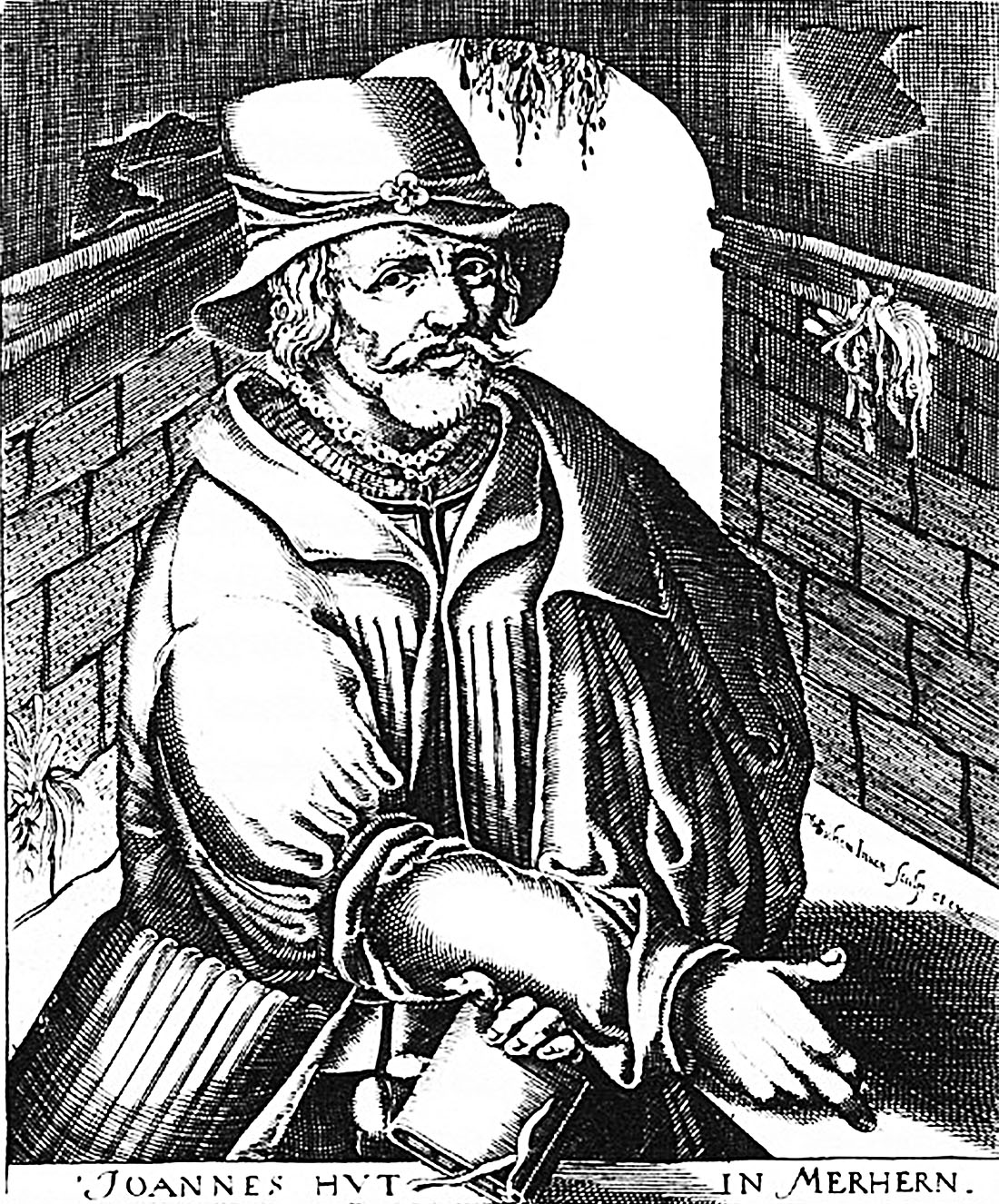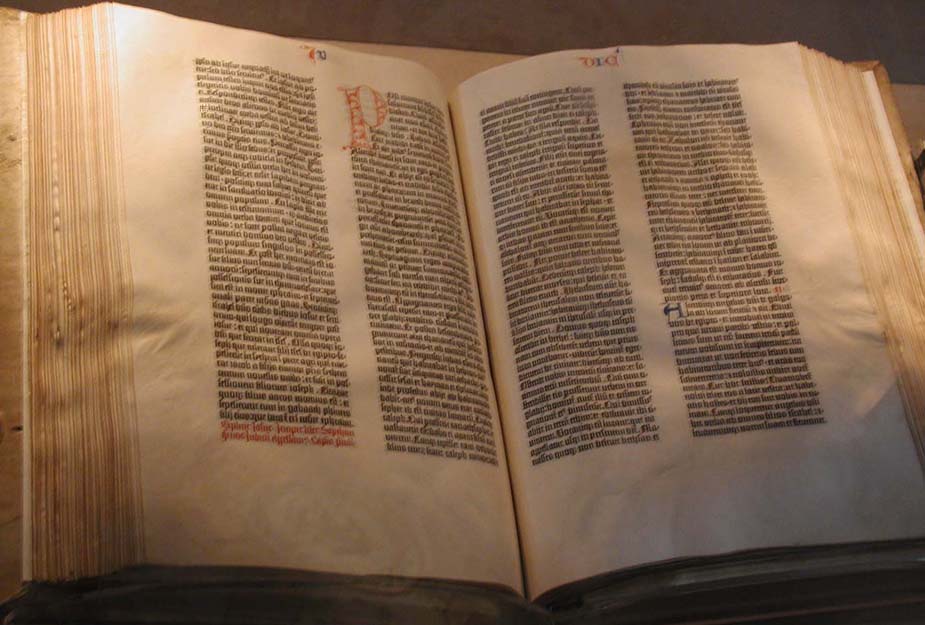|
Lucas Maius
Lucas Maius (also Mai, May, Majus) (October 14, 1522 in Römhild – 4 or 5 March 1598 in Kassel) was a German Protestant pastor who converted from Lutheranism to Calvinism, and playwright during the Protestant Reformation. Life Lucas Maius was born in Römhild in 1522, to mill owner Michael May and his wife, Martha Dörrer. In his early years, he moved with his parents to Hildburghausen, as his father took part in the German Peasants' War. There, he attended school in the winters, helping with the farmwork in the summer months. He learned a simple job as tailor. In 1548, he completed his studies at the University of Wittenberg, where he had attended lectures by Philipp Melanchthon. In 1549, he traveled to Silesia, Prussia, Poland, Denmark and Holland. In 1550, he became a schoolteacher, and after his marriage in 1551, he became principal of the school in Hildburghausen. Ordained by Johann Stössel in Weimar, Maius took over as substitute pastor in Eishausen, Straufhain in 1561, a ... [...More Info...] [...Related Items...] OR: [Wikipedia] [Google] [Baidu] |
Römhild
Römhild () is a town in the Hildburghausen (district), district of Hildburghausen, in Thuringia, Germany. It is situated 14 km west of Hildburghausen, and 21 km southeast of Meiningen. On 31 December 2012, it merged with the former municipalities Gleichamberg, Haina, Hildburghausen, Haina, Mendhausen, Milz (Römhild), Milz and Westenfeld. In the Stadtkirche of Römhild is the tomb of Elisabeth (a daughter of Albrecht III Achilles, Elector of Brandenburg) and Hermann VIII of Henneberg. The grave has sometimes been attributed to Vischer Family of Nuremberg, Herman Vischer the Younger (c.1486–1517), a member of the Vischer Family of Nuremberg. Notable people * Hans Hut (1490–1527), Anabaptist * Lucas Maius (1522–1598), Protestant theologian and dramatist * Max Saalmüller (1832–1890), Prussian Lieutenant-Colonel and Lepidopterologist * Alfred Götze (prehistorian), Alfred Götze (1865–1948), Prehistorian, honorary citizen 1929 References External links A ... [...More Info...] [...Related Items...] OR: [Wikipedia] [Google] [Baidu] |
Crypto-Calvinist
Crypto-Calvinism is a pejorative term describing a segment of those members of the Lutheran Church in Germany who were accused of secretly subscribing to Calvinist doctrine of the Eucharist in the decades immediately after the death of Martin Luther in 1546. It denotes what was seen as a hidden (''crypto''- from meaning "to hide, conceal, to be hid") Calvinist belief, i.e., the doctrines of John Calvin, by members of the Lutheran Church. The term crypto-Calvinist in Lutheranism was preceded by terms Zwinglian and Sacramentarian. Also, Jansenism has been accused of crypto-Calvinism by Roman Catholics. Background Martin Luther had controversies with "Sacramentarians", and he published against them, for example, in his '' The Sacrament of the Body and Blood of Christ—Against the Fanatics'' and '' Confession Concerning Christ's Supper''. Philipp I of Hessen arranged the Marburg Colloquy in 1529, but no agreement could be reached concerning the doctrine of Real Presence. Subsequ ... [...More Info...] [...Related Items...] OR: [Wikipedia] [Google] [Baidu] |
German Protestant Clergy
German(s) may refer to: * Germany, the country of the Germans and German things **Germania (Roman era) * Germans, citizens of Germany, people of German ancestry, or native speakers of the German language ** For citizenship in Germany, see also German nationality law **Germanic peoples (Roman era) * German diaspora * German language * German cuisine, traditional foods of Germany People * German (given name) * German (surname) * Germán, a Spanish name Places * German (parish), Isle of Man * German, Albania, or Gërmej * German, Bulgaria * German, Iran * German, North Macedonia * German, New York, U.S. * Agios Germanos, Greece Other uses * German (mythology), a South Slavic mythological being * Germans (band), a Canadian rock band * "German" (song), a 2019 song by No Money Enterprise * ''The German'', a 2008 short film * "The Germans", an episode of ''Fawlty Towers'' * ''The German'', a nickname for Congolese rebel André Kisase Ngandu See also * Germanic (disambi ... [...More Info...] [...Related Items...] OR: [Wikipedia] [Google] [Baidu] |
1598 Deaths
Events January–March * January 8 – In Berlin, Joachim Frederick, Elector of Brandenburg, Joachim Frederich of the House of Hohenzollern becomes the new List of rulers of Brandenburg, Elector of Brandenburg upon the death of his father, John George, Elector of Brandenburg, Johann Georg von Brandenburg. * January 17 – The List of Russian monarchs, Tsar of the Russian Empire, Feodor I of Russia, Feodor I, dies of a sudden illness at the age of 40, leaving no children and bringing an end to the Rurikids, Rurik dynasty. His widow, Irina Godunova, takes action to secure the throne but her rule lasts for only nine days. * January 26 – After receiving no support from the Russian nobles, the Tsaritsa Irina Godunova abandons her brief rule as autocrat of Russia, and abdicates in favor of her older brother, Boris Godunov. * January 29 – In what is now South Korea, a force of 50,000 troops of the Korean kingdom of Joseon and Chinese Ming dynasty troops begins the siege o ... [...More Info...] [...Related Items...] OR: [Wikipedia] [Google] [Baidu] |
1522 Births
__NOTOC__ Year 1522 (Roman numerals, MDXXII) was a common year starting on Wednesday of the Julian calendar, the 1522nd year of the Common Era (CE) and ''Anno Domini'' (AD) designations, the 522nd year of the 2nd millennium, the 22nd year of the 16th century, and the 3rd year of the 1520s decade. Events January–March * January 9 – The 1521–1522 papal conclave, papal conclave to elect a successor to the late Pope Leo X is concluded as Adriaan Florensz Boeyens of the Netherlands, Bishop of Utrecht, is selected as a compromise candidate despite being absent from the proceedings. Bishop Boeyens is proclaimed as Pope Adrian VI, the 218th pope and the last non-Italian pontiff for the next 450 years. * January 26 – Spanish ''conquistador'' Gil González Dávila sets out from the gulf of Panama to explore the Pacific coast of Central America. He Spanish conquest of Nicaragua#Discovery of Nicaragua, 1519–1522, explores Nicaragua and names Costa Rica when he ... [...More Info...] [...Related Items...] OR: [Wikipedia] [Google] [Baidu] |
Evangelische Verlagsanstalt
The Evangelische Verlagsanstalt (EVA) is a denominational media company founded in Berlin in 1946. Its shareholders are the and the Evangelical-Lutheran Church of Saxony. The managing director is Sebastian Knöfel. Book publisher The range includes numerous theological-scientific publications, religious education, congregational literature including calendars as well as Christian Belles-lettres with a focus on biographies and stories. Newspapers and magazines The EVA publishes, among others, the ', the ', the ''Berliner Theologische Zeitschrift'' and the ' (formerly ''Die Christenlehre''). Private radio The Evangelische Verlagsanstalt GmbH is a shareholder in commercial broadcasting. In addition, female employees of the Evangelische Verlagsanstalt work as church radio editors in the Saxon broadcasters and . History 1946–1989 Under the licence number 54 of the Soviet Military Administration in Germany, the Evangelische Verlagsanstalt GmbH was founded in 1946 with head ... [...More Info...] [...Related Items...] OR: [Wikipedia] [Google] [Baidu] |
Wilhelm Kosch
Wilhelm Franz Josef Kosch (2 October 1879 – 20 December 1960) was an Austrian historian of literature and theatre and lexicographer. The lexicon that he conceived and later revised several times, the ''Deutsches Literatur-Lexikon'' is a references in the field of German literature. Born in Drahany in Moravia, Kosch died in Vienna in 1960 at age 81. Publications * ''A. Stifter. Festschrift'', 1905 * ''Martin Greif in seinen Werken'', 1907 * ''Die Deutschen in Österreich und ihr Ausgleich mit den Tschechen'', 1909 * ''Menschen und Bücher''. Essays 1912 * ''Melchior Diepenbruck'', 1913 * ''Das deutsche Theater und Drama (im 19. Jahrhundert) seit Schillers Tod'', Vier Quellen Verlag, Leipzig (1913) * M. Sailer, 1914 * Martin von Cochem, 1915 * ''Feldmarschall Graf Radetzky'', 1915 * J. von Eichendorff, 1923 * ''Das katholische Deutschland'', [...More Info...] [...Related Items...] OR: [Wikipedia] [Google] [Baidu] |
Bad Rodach
Bad Rodach () is a town in the district of Coburg, in Upper Franconia, a north Bavarian Regierungsbezirk, Germany. It is situated 10 km southeast of Hildburghausen, and 17 km northwest of Coburg. Since 1999 the city has been a spa-resort and is reported to have the warmest thermal spring in the North of Bavaria. Description Bad Rodach is in Upper Franconia, in the District of Coburg approximately 17 km northwest of Coburg. It is situated between the Lange Berge hills and Gleichberge mountains. The river Rodach crosses through the town. The town is composed of the following boroughs: History Within the Holy Roman Empire (962-1806), Rodach was part of the Duchy of Saxe-Coburg-Saalfeld (1699–1825). Within the German Empire (1871-1918), Rodach was part of the Duchy of Saxe-Coburg and Gotha. Personalities who were active in Rodach * Francis Josias, Duke of Saxe-Coburg-Saalfeld (1697-1764), sovereign of the duchy, died in Rodach. * 1814 the poet Friedrich Rück ... [...More Info...] [...Related Items...] OR: [Wikipedia] [Google] [Baidu] |
Wilhelm IV Of Hesse
William IV of Hesse-Kassel (24 June 153225 August 1592), also called ''William the Wise'', was the first Landgrave of the Landgraviate of Hesse-Kassel (or Hesse-Cassel). He was the founder of the oldest line, which survives to this day. Life Landgrave William was born in Kassel, the eldest son of Landgrave Philip the Magnanimous and Christine of Saxony. After his father's death in 1567, the Landgraviate of Hesse was divided among the four sons from the late Landgrave of Hesse's first marriage, and William received the portion around the capital Kassel, the Landgraviate of Hesse-Kassel. William took a leading part in safeguarding the Lutheran Reformation, and was indefatigable in his endeavours to unite the different sections of Protestantism against Catholicism. However, he was reluctant to use military force in this conflict. As an administrator he displayed rare energy, issuing numerous ordinances, appointing expert officials, and in particular ordering his slender finances. ... [...More Info...] [...Related Items...] OR: [Wikipedia] [Google] [Baidu] |
Reformed Churches
Reformed Christianity, also called Calvinism, is a major branch of Protestantism that began during the 16th-century Protestant Reformation. In the modern day, it is largely represented by the Continental Reformed Christian, Presbyterian, Congregational, and Waldensians traditions, as well as parts of the Methodist, Anglican (known as "Episcopal" in some regions) and Baptist traditions. Reformed theology emphasizes the authority of the Bible and the sovereignty of God, as well as covenant theology, a framework for understanding the Bible based on God's covenants with people. Reformed churches emphasize simplicity in worship. Several forms of ecclesiastical polity are exercised by Reformed churches, including presbyterian, congregational, and some episcopal. Articulated by John Calvin, the Reformed faith holds to a spiritual (pneumatic) presence of Christ in the Lord's Supper. Emerging in the 16th century, the Reformed tradition developed over several generation ... [...More Info...] [...Related Items...] OR: [Wikipedia] [Google] [Baidu] |
Joachim III Frederick, Elector Of Brandenburg
Joachim Frederick (27 January 1546 – 18 July 1608), of the House of Hohenzollern, was Prince-elector of the Margraviate of Brandenburg from 1598 until his death. Biography Joachim Frederick was born in Cölln to John George, Elector of Brandenburg, and Sophie of Legnica. He served as administrator of the Archbishopric of Magdeburg from 1566 to 1598, then succeeded his father as Elector of Brandenburg in 1598. Joachim Frederick was succeeded at his death by his son John Sigismund. Joachim Frederick's first marriage on 7 March 1570 was to Catherine of Brandenburg-Küstrin, daughter of John, Margrave of Brandenburg-Küstrin, and Catherine of Brunswick-Wolfenbüttel. Joachim Frederick and Catherine of Brandenburg-Küstrin had these children: * John Sigismund, Elector of Brandenburg (8 November 1572 – 23 December 1619) * Anne Catherine (26 June 1575 – 29 March 1612), married King Christian IV of Denmark *Girl 576* John George, Duke of Jägerndorf (16 Dece ... [...More Info...] [...Related Items...] OR: [Wikipedia] [Google] [Baidu] |



